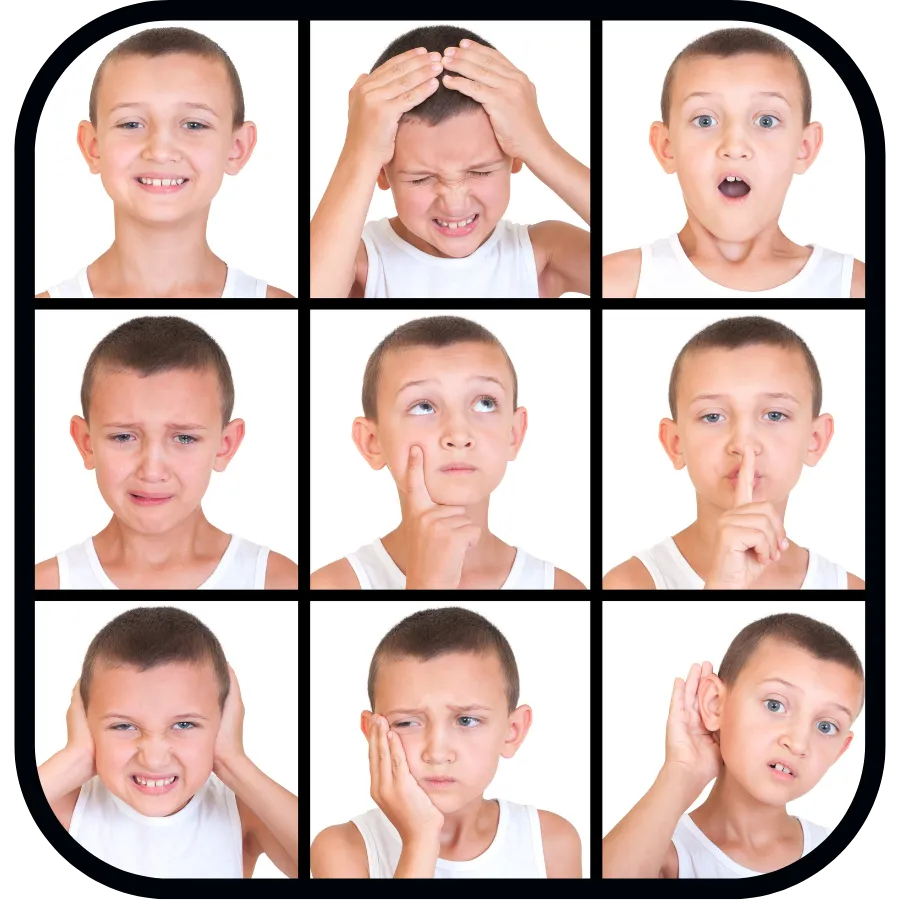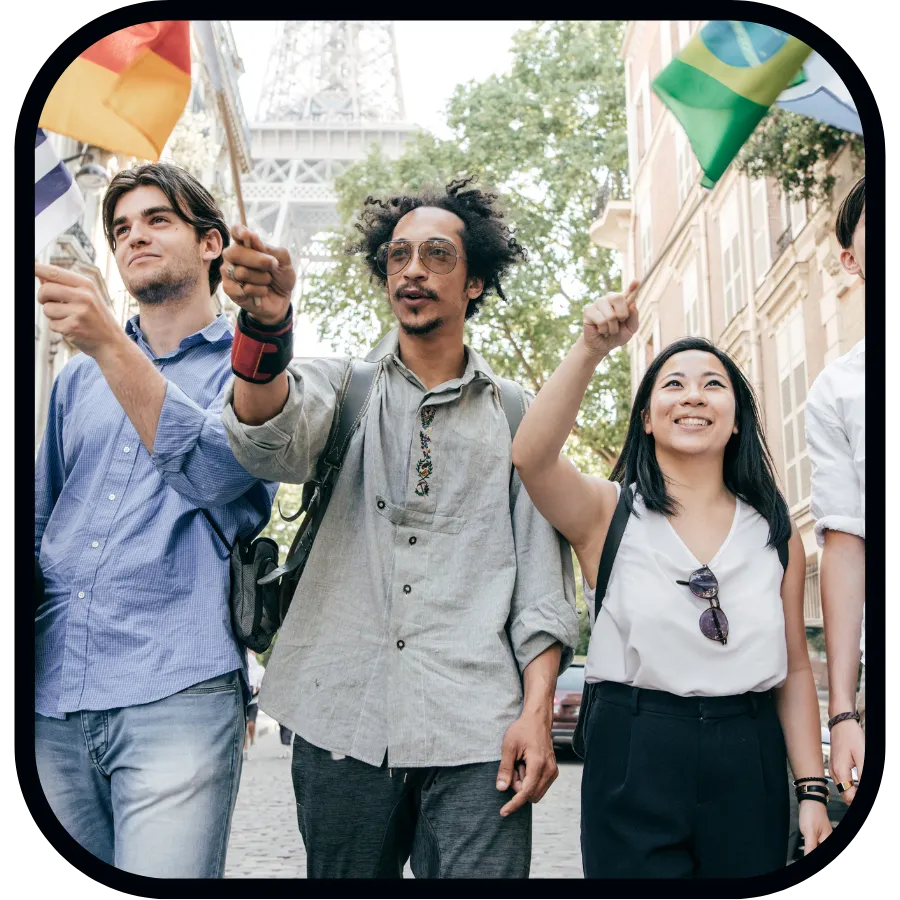
What Is SEL?
The Virginia Department of Education (VDOE) defines SEL, based on the Collaborative for Academic, Social, and Emotional Learning (CASEL) definition, as "the process through which all young people and adults acquire and apply the knowledge, skills, and attitudes to develop healthy identities, manage emotions and achieve personal and collective goals, feel and show empathy for others, establish and maintain supportive relationships, and make responsible and caring decisions."
SEL Competencies
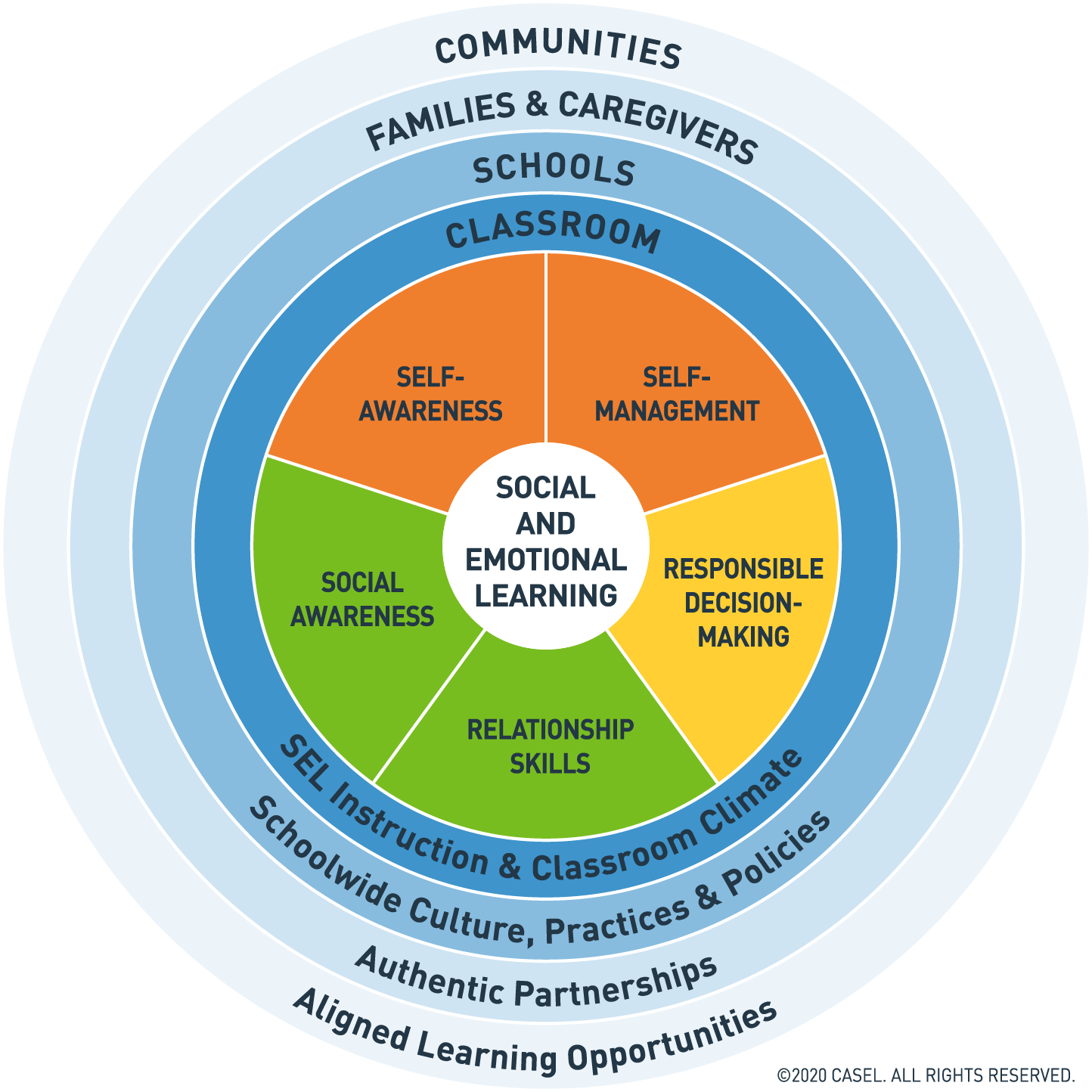 The Virginia Department of Education (VDOE) has developed a framework associated with SEL standards. Within each competency there are overarching concepts that also indicate alignment to descriptors of Virginia's Profile of a Graduate. Each grade level band has a set of specific standards within each competency. PWCS strives for all students to attain skills to meet these standards that take into consideration vertical alignment throughout the student's academic career.
The Virginia Department of Education (VDOE) has developed a framework associated with SEL standards. Within each competency there are overarching concepts that also indicate alignment to descriptors of Virginia's Profile of a Graduate. Each grade level band has a set of specific standards within each competency. PWCS strives for all students to attain skills to meet these standards that take into consideration vertical alignment throughout the student's academic career.
Taking a systematic approach to SEL enhances students learning and mastery of competencies. Families, schools, and communities are all part of student systems and shape their development and experiences. To read more about each of the key settings and engage with the interactive CASEL Wheel, visit the CASEL website.
Gain more understanding of the five main competencies of SEL included below: Self-Awareness, Self-Management, Social Awareness, Relationship Skills, and Decision-Making.
|
|
| Social-Emotional Learning: What Is SEL and Why SEL Matters (YouTube Video) |
|
|
| SEL 101: What are the core competencies and key settings? (YouTube Video) |
What is the impact of SEL?
Improved academic outcomes and behaviors for our students
- A research study that looked at 213 different studies found that students' academic performance increased by 11%.
- Improved behaviors in the classroom.
- And they were better equipped to manage stress and other emotional strains. (Durlak et al., 2011)
Long-term benefits
- A study done by Taylor et al. (2017) that indicated higher levels of well-being up to 18 years later.
- There is also research that shows the skills learn help improve lifetime outcomes. (American Journal of Public Health, 2015)
Wise financial investment
- Schools who invest in SEL programming see a 11 to 1 return, which means that for every $1 invested there is an $11 return. (Columbia, 2015)
Self-Awareness
Self-Awareness
Ability to recognize and understand your own emotions & thoughts and how they influence behaviors.
Within the Self-Awareness competency the overarching concepts that each student should attain with the Virginia's Profile of a Graduate descriptors:
- Recognize and understand the interaction between one's own thoughts and emotions. (Critical Thinking)
- Develop a positive identity and recognize personal strengths, interests, values, and challenges. (Creative Thinking)
Examples of this in action could be, but not limited to:
- Identifying personal, cultural, and linguistic assets
- Identifying one's emotions
- Demonstrating honesty and integrity
- Linking feelings, values, and thoughts
- Having a growth mindset
Self-Management
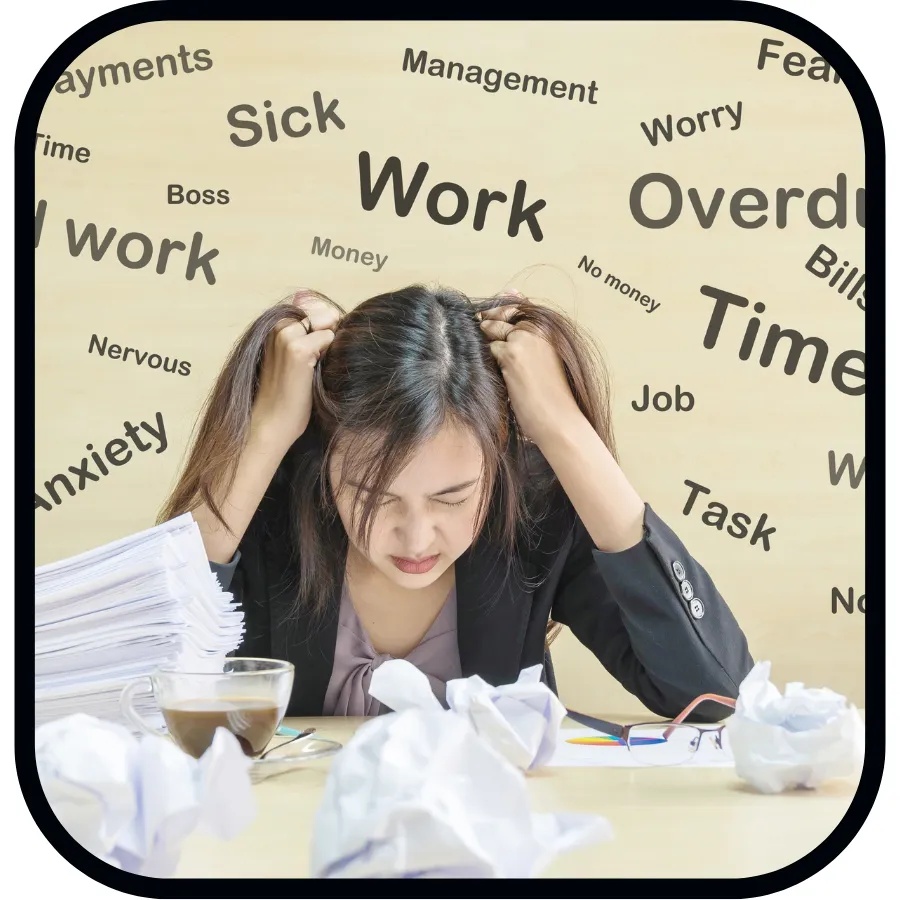 Self-Management
Self-Management
Ability to manage emotions, thoughts, and behaviors to achieve goals.
Within the Self-Management competency the overarching concepts that each student should attain with the Virginia's Profile of a Graduate descriptors:
- Develop and demonstrate strategies for managing and expressing one's own emotions to persevere in challenging situations. (Communication)
- Demonstrate the skills related to achieving personal and academic goals. (Creative Thinking)
Examples of this in action could be, but not limited to:
- Managing one's emotions
- Identifying and using stress-management strategies
- Exhibiting self-discipline and self-motivation
- Setting personal and collective goals
- Using planning and organizational skills
Self-Management
Social-Emotional Learning Video (PBS)
Social-Awareness
Social-Awareness
Ability to empathize and feel compassion for others and understand historical and social norms.
Within the Social-Awareness competency the overarching concepts that each student should attain with the Virginia's Profile of a Graduate descriptors:
- Demonstrate the ability to empathize with and show gratitude for others, including those with different and diverse perspectives, abilities, backgrounds, and cultures. (Collaboration)
- Demonstrate the ability to understand broader historical and social contexts' impact on humanity. (Citizenship)
Examples of this in action could be, but not limited to:- Taking others' perspectives into consideration
Recognizing strengths in others - Demonstrating empathy and compassion
- Showing concern for the feelings of others
- Understanding and expressing gratitude
- Taking others' perspectives into consideration
Social-Awareness
Social-Emotional Learning Video (PBS)
Relationship Skills
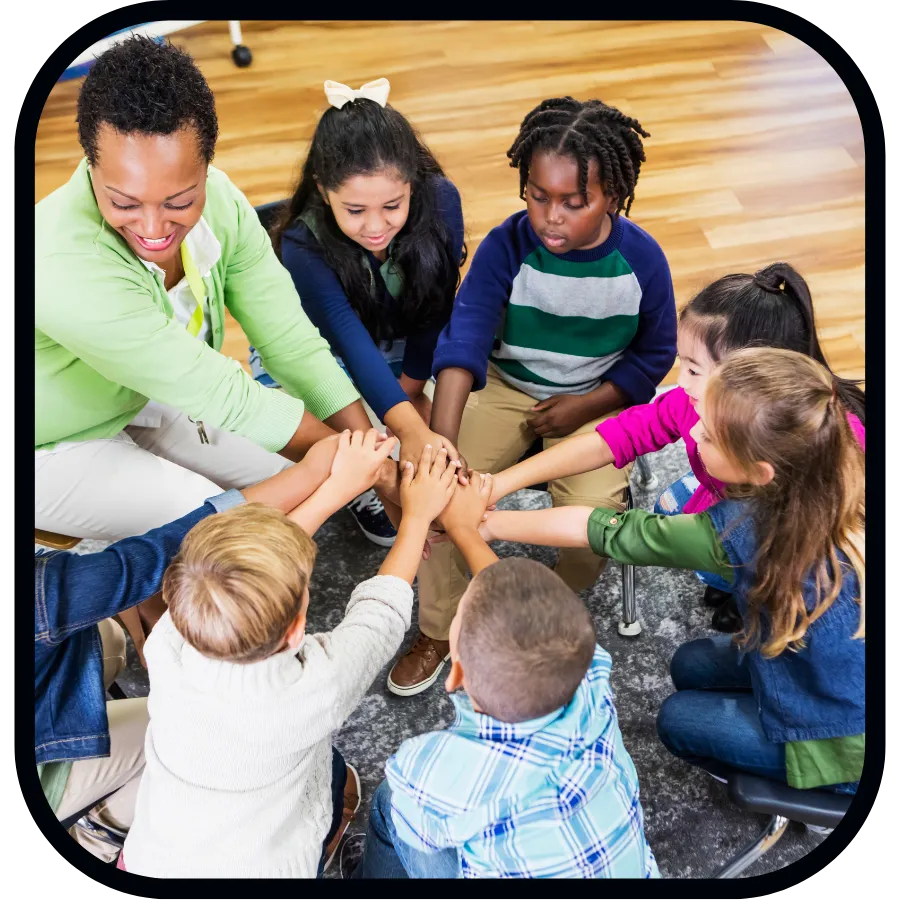 Relationship Skills
Relationship Skills
Ability to build and maintain relationships & communicate, listen, and work collaboratively with others.
Within the Relationship Skills competency the overarching concepts that each student should attain with the Virginia's Profile of a Graduate descriptors:
- Apply verbal and non-verbal communication and listening skills to interact with others, form and maintain positive relationships, and resolve conflict constructively. (Communication)
- Demonstrate the ability to effectively collaborate and navigate relationships while valuing different and diverse perspectives, abilities, backgrounds, and cultures. (Collaboration)
Examples of this in action could be, but not limited to:
- Communicating effectively
- Developing positive relationships
- Practicing teamwork and collaborative problem-solving
- Resolving conflicts constructively
- Seeking or offering support and help when needed
- Standing up for the rights of others
Decision-Making Skills
 Decision-Making Skills
Decision-Making Skills
Ability to evaluate positive and negative consequences of actions as it relates to self and others.
Within the Decision-Making Skills competency the overarching concepts that each student should attain with the Virginia's Profile of a Graduate descriptors:
- Demonstrate the ability to evaluate, through reflection, the benefits and consequences of various actions within the decision-making process. (Critical Thinking)
- Demonstrate the ability to make ethical decisions as a global citizen and evaluate outcomes based on one's own identity and the impact on humanity. (Citizenship)
Examples of this in action could be, but not limited to:
- Learning how to make a reasoned judgment after analyzing information, data, and facts
- Identifying solutions for personal and social problems
- Anticipating and evaluating the consequences of one's actions
- Recognizing how critical thinking skills are useful both inside and outside of school
Responsible Decision-Making
Social-Emotional Learning Video (PBS)

